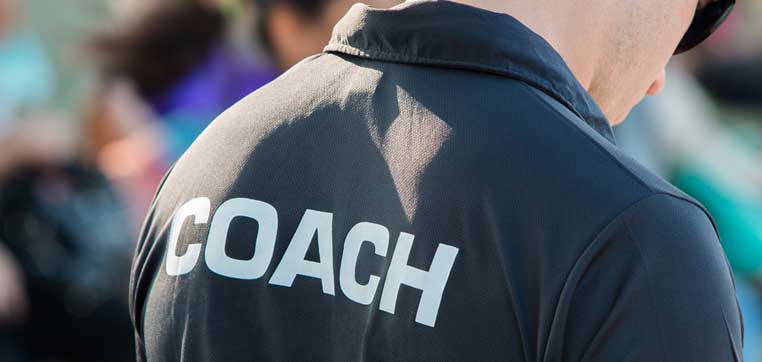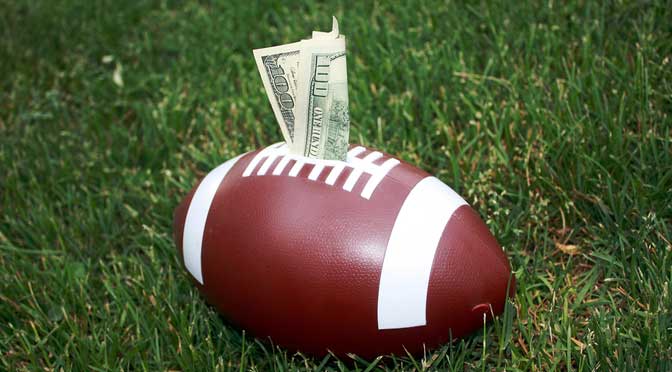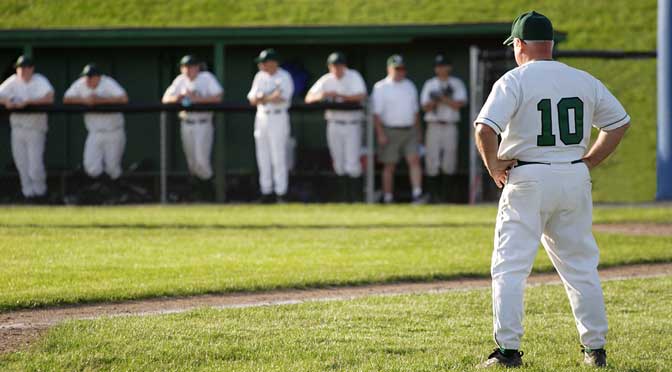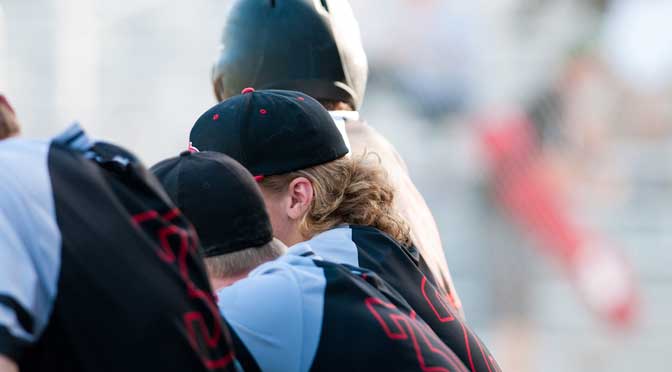 According to an NCAA survey, 43% of D1 Softball players had their first recruiting contact in ninth grade or earlier. Another 35% had their first contact as sophomores. That means over 3/4s of all D1 sophomore players are being recruited by their sophomore year. This explains why, on average, D1 Softball players make their verbal commitments before the end of their sophomore year. I’m not saying it’s right. It’s crazy as far as I’m concerned. But that means softball players need to get their recruiting act together early!
According to an NCAA survey, 43% of D1 Softball players had their first recruiting contact in ninth grade or earlier. Another 35% had their first contact as sophomores. That means over 3/4s of all D1 sophomore players are being recruited by their sophomore year. This explains why, on average, D1 Softball players make their verbal commitments before the end of their sophomore year. I’m not saying it’s right. It’s crazy as far as I’m concerned. But that means softball players need to get their recruiting act together early!
Athletics
When are D1 Athletes Recruited?
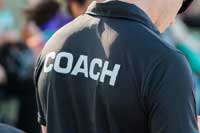 When is it too late? When do you know that you should give up on playing D1 and start looking elsewhere because you haven’t heard from any coaches? While there will always be those who say “never say never” right up to the moment they find themselves enrolling in whatever last minute college they could get into, the truth is that most athletes are willing to face reality and move on once they know when. The questions is when is “when?” Thanks to an NCAA Survey completed last fall, athletes have a better estimate of “when” for most sports.
When is it too late? When do you know that you should give up on playing D1 and start looking elsewhere because you haven’t heard from any coaches? While there will always be those who say “never say never” right up to the moment they find themselves enrolling in whatever last minute college they could get into, the truth is that most athletes are willing to face reality and move on once they know when. The questions is when is “when?” Thanks to an NCAA Survey completed last fall, athletes have a better estimate of “when” for most sports.
Must Reads about the Odds of Playing College Sports and Receiving Athletic Scholarships
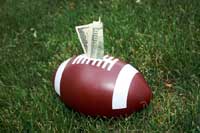 Just a casual browsing of my blog would reveal that I’m not anti-athlete. When my son wanted to play baseball in college, I spent a lot of time educating myself about the college baseball recruiting process and shared the information here. However, there’s a big difference between playing college sports and receiving an athletic scholarship.
Just a casual browsing of my blog would reveal that I’m not anti-athlete. When my son wanted to play baseball in college, I spent a lot of time educating myself about the college baseball recruiting process and shared the information here. However, there’s a big difference between playing college sports and receiving an athletic scholarship.
What You Need to Know About College Recruiting: Coaching Changes
 If you have even the slightest interest in college athletics, I don’t think it’s possible to have missed all the press on the college football post-season coaching changes. As coaches leave one school for another, there is the question about what happens to the players he recruited. And if you’re an existing, or hopefully soon to be, athletic recruit, the chances of finding yourself dealing with college coaching changes is more likely than you think. So keep up with the reading.
If you have even the slightest interest in college athletics, I don’t think it’s possible to have missed all the press on the college football post-season coaching changes. As coaches leave one school for another, there is the question about what happens to the players he recruited. And if you’re an existing, or hopefully soon to be, athletic recruit, the chances of finding yourself dealing with college coaching changes is more likely than you think. So keep up with the reading.
50-50 Highlights: NCAA D1 Colleges
 Is it possible to have college without athletics? The rest of the world pretty much thinks so. But we’re in the United States where college sports is a big business and can be a major selling point for universities. Students are interested in watching big time sports and the shared identity. For players it’s the next step, often the only or final step, in their athletic careers. For better or worse, sports play a major role in college education.
Is it possible to have college without athletics? The rest of the world pretty much thinks so. But we’re in the United States where college sports is a big business and can be a major selling point for universities. Students are interested in watching big time sports and the shared identity. For players it’s the next step, often the only or final step, in their athletic careers. For better or worse, sports play a major role in college education.
What do College Baseball Coaches Want?
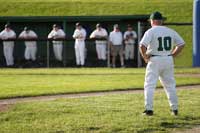 Just before Christmas I shared some information from the College Baseball Profiles College Coaches survey and the importance of high school baseball–at least in New England. Today I want to point out some of the other survey results about college coaches and the baseball recruiting process.
Just before Christmas I shared some information from the College Baseball Profiles College Coaches survey and the importance of high school baseball–at least in New England. Today I want to point out some of the other survey results about college coaches and the baseball recruiting process.
High School Baseball Still Counts
 Anyone interested in playing college baseball needs to head over to College Baseball Profiles and read their latest College Coaches Survey. The focus is on New England colleges but it’s worth reading for some much needed insight in college baseball recruiting. Today I want to focus on one conclusion of the report-high school baseball still matters.
Anyone interested in playing college baseball needs to head over to College Baseball Profiles and read their latest College Coaches Survey. The focus is on New England colleges but it’s worth reading for some much needed insight in college baseball recruiting. Today I want to focus on one conclusion of the report-high school baseball still matters.
College Baseball Recruiting Timeline
 When looking at this recruiting timeline, keep in mind this is geared for baseball players. In many ways, your senior high school baseball season will not count. The majority of coaches (not all) will have already filled their recruit classes for the following year (your college freshman year). Depending on the division and conference (think “power 5”) they may have already filled the slots for the year after that (your college sophomore year) and only have a few left for the following year. Yes, college baseball coaches are taking verbal commitments from high school sophomores.
When looking at this recruiting timeline, keep in mind this is geared for baseball players. In many ways, your senior high school baseball season will not count. The majority of coaches (not all) will have already filled their recruit classes for the following year (your college freshman year). Depending on the division and conference (think “power 5”) they may have already filled the slots for the year after that (your college sophomore year) and only have a few left for the following year. Yes, college baseball coaches are taking verbal commitments from high school sophomores.
Which Colleges Spend the Most on D1 Baseball?
 (See the most updated information at here.) Given that full-ride scholarships are a rarity in college baseball, players may want to consider other ways colleges support their baseball programs. After all, there are ways for colleges to spend money on baseball that will affect the players’ overall experience besides just scholarships. This can include anything from uniforms, equipment, fields, to travel. For those interested in such things, this is an update on D1 baseball expenses by team using the latest information from the Office of Postsecondary Education (OPE).
(See the most updated information at here.) Given that full-ride scholarships are a rarity in college baseball, players may want to consider other ways colleges support their baseball programs. After all, there are ways for colleges to spend money on baseball that will affect the players’ overall experience besides just scholarships. This can include anything from uniforms, equipment, fields, to travel. For those interested in such things, this is an update on D1 baseball expenses by team using the latest information from the Office of Postsecondary Education (OPE).


